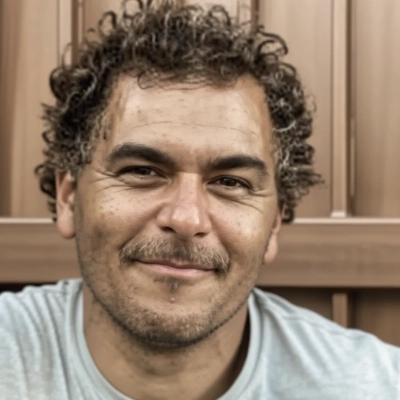How 6 Challenging Cases Transformed My Approach to Marriage Counseling
In this revealing examination of marriage counseling transformation, readers will discover six challenging cases that reshape conventional therapeutic approaches. Leading psychologists and relationship experts share their professional insights on how issues like emotional distance, unprocessed grief, and ADHD impact marital dynamics. These real-world examples provide valuable lessons for understanding the complex patterns that emerge in struggling partnerships.
Grief Masks as Contempt in Evolving Marriages
The Bird in Her Hand: A Case That Changed My Lens on Marriage Counseling
One couple transformed how I approach marital therapy. They'd married young—barely 20—bonded by partying, high school friends, and little ambition. Then came a pregnancy, sobriety, and the slow pivot into parenthood. She matured quickly, eventually rising from bank teller to manager. He stayed rooted in the past—still drinking, still drifting.
When they arrived in my office in their early 30s, the contrast was striking. She wore a tailored suit, poised and purposeful. He slouched in jeans and a backwards cap, the embodiment of arrested development. Mid-session, she lifted her hand, palm up, gesturing toward him like cradling a fragile bird. "Look what I've got," she said.
That moment reframed everything. Her gesture wasn't contempt—it was grief, longing, and a plea for recognition. I realized how often couples evolve at different speeds, and how resentment can mask deep attachment. From then on, I began helping couples rediscover their shared origin story—not to relive the past, but to realign their futures. We explored values, recalibrated goals, and built a new narrative—one that honored growth without abandoning connection.
That bird-in-hand moment still guides me. It reminds me that transformation begins not with judgment, but with curiosity and care.

Creating a Third Entity Shifts Blame to Partnership
One particularly challenging case involved a couple deeply entrenched in resistance to change, which prompted me to develop the 'Third Entity' concept in my practice. This approach helps couples view their relationship as something they both contribute to rather than blaming each other for problems. The shift in perspective allows couples to work together on strengthening their relationship through structured activities and improved communication. I now regularly incorporate this framework with other couples, helping them move from patterns of criticism and defensiveness to greater connection and mutual understanding.
Emotional Distance Disguises Itself as Sexual Dysfunction
One of the most transformative cases I ever handled centred on sex or rather, the lack of it.
The couple, married 14 years, hadn't been sexually intimate in over two. They'd stopped touching entirely. On the surface, they described it as "low libido" and "stress," but as the sessions unfolded, it became obvious that the deeper issue was emotional alienation disguised as sexual dysfunction.
He felt constantly rejected, so he stopped initiating. She felt pressured, so she withdrew further. The bedroom became a silent battlefield every "not tonight" meant I don't want you, and every retreat meant you don't care about me. They weren't avoiding sex they were avoiding rejection.
The turning point came when I stopped focusing on sex acts and instead focused on erotic communication. I asked them to start sharing one intimate thought or fantasy per week no judgment, no expectation to act on it, just honesty. For the first time, they talked about desire without shame or performance. Within a month, touch returned. By three months, they were having sex again but more importantly, they were emotionally naked long before they were physically naked.
The insight that's guided my work ever since:
Sexual disconnection is almost never about desire; it's about emotional distance. Restore safety and curiosity, and the body will follow.
Now, I never start sexual counselling by talking about technique. I start with trust, communication, and permission to be vulnerable. That's where real intimacy and real eroticism begins.

Unprocessed Grief Creates Barriers to Authentic Connection
A couple in their 60s came to me wanting to reignite intimacy. They had a history as swingers but were now stuck, she couldn't reach him emotionally, and he was trapped behind what they called "Mr. Grumpy."
By staying curious, I discovered what was actually happening beneath the surface. He'd recently lost his father, experienced two near-death experiences, including one where he felt his life force literally leave his body during a cardiac event, and had lost all meaning in his work. He was drowning in unprocessed grief and trauma.
But he wouldn't allow himself to feel it. He'd convinced himself his partner wouldn't want to connect if she knew how much he was struggling. "Mr. Grumpy" wasn't who he was, it was a mask of self-protection. He believed he needed to be strong for her, that he should be able to connect.
The breakthrough came when I helped him process his grief and trauma. As he allowed himself to finally feel and express what he'd been carrying, the loss of his father, the existential terror of nearly dying twice, the loss of purpose, the mask dropped. When he began crying and showed his real vulnerability, everything shifted. She immediately moved toward him. What he feared would repel her actually drew her in. She just wanted to connect with the real him, not the protective shell.
From there, I introduced them to the 3-Minute Game and the Wheel of Consent by Betty Martin, structured ways to rebuild intimacy and safety, especially given their history with non-consensual experiences.
They went from the brink of divorce to: "OMG, there has been a world of change. We had breakthrough after breakthrough and continue rebuilding our trust. We are so grateful."
Relationship issues can be trauma or grief in disguise. When I help individuals process what they're actually carrying, the unmetabolized pain beneath their protective masks, connection flows naturally again. My job is to create safety for that deep processing to happen, allowing the real person to emerge.

Family Photos Reveal Patterns of Generational Anger
One of the most transformative cases in my practice involved working with a couple where one partner struggled with anger issues that were damaging their relationship. By guiding this individual to examine a photograph of their father, I helped them recognize how they were repeating generational patterns of anger. This connection between past family dynamics and present relationship challenges created a breakthrough moment that significantly reduced their angry outbursts. I now regularly incorporate this awareness of generational patterns into my counseling approach, helping couples understand how their family histories influence their current relationship dynamics.

ADHD Strategies Transform Couples Therapy Approach
Early in my career as a couples therapist, a couple came to see me where one of them had already been diagnosed with ADHD and this was a primary source of strain in their relationship. I knew very little about how ADHD impacts relationships and how it presents in adults. I started reading books and taking trainings so that I could help this couple, and it totally transformed my practice! Giving couples strategies for how to work WITH their neurotype rather than expecting them to "fix" what was "wrong" with them has been a game-changer. It feels so good when I can see the relief on someone's face when we find those strategies that work and they both begin to see the neurodivergent parter as different but not broken.


